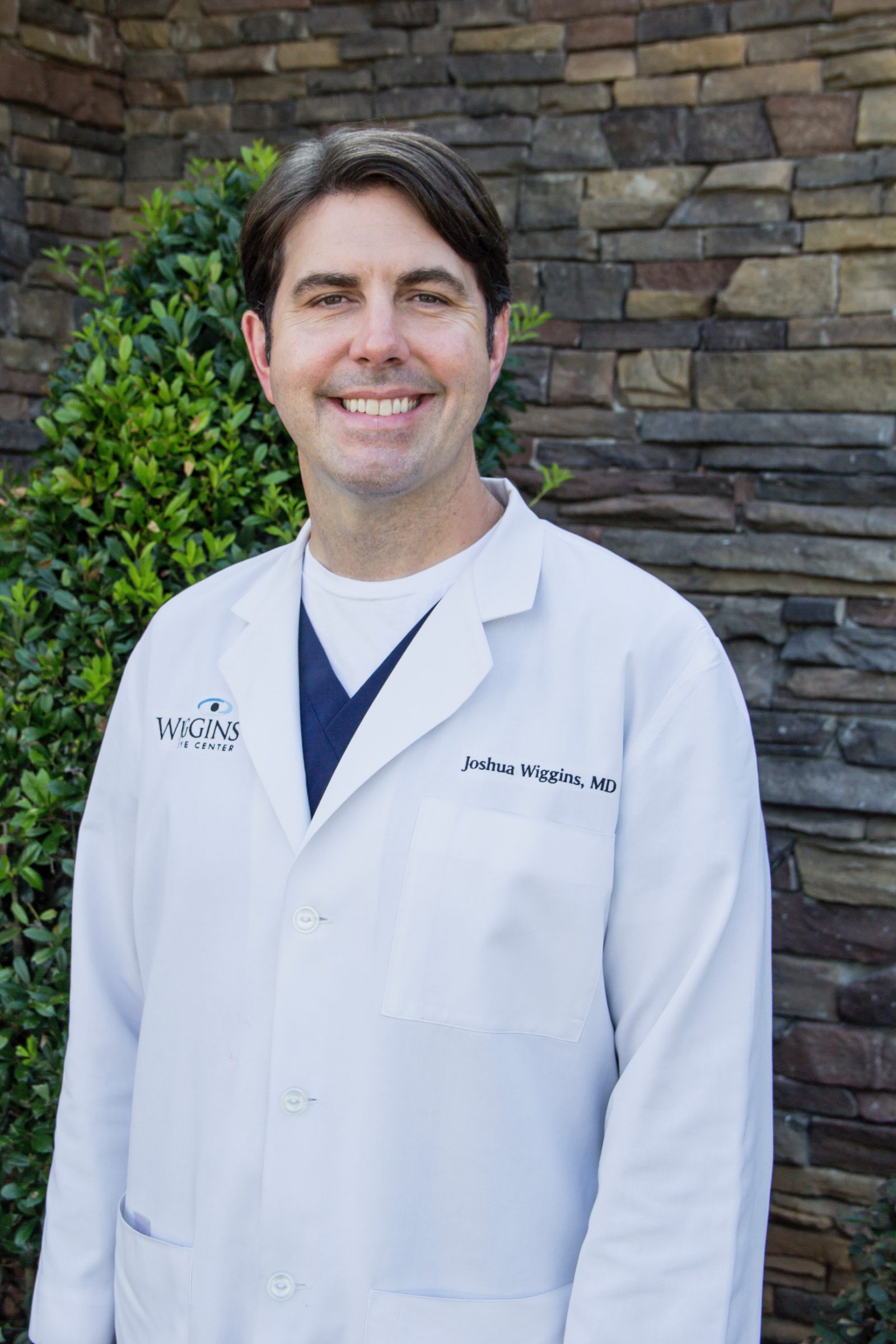The Way EYE See It- Dr. Joshua Wiggins, Ophthalmologist

After 15 years in practice as an ophthalmologist, one of the most common questions I get asked at social events is “when do I need to get my child’s eyes checked for the first time?”. This is a great question and one for which there is not a hard and fast answer. If you or your pediatrician have not seen anything concerning, then a good rule of thumb is to get a complete eye exam for your child by an ophthalmologist before they start kindergarten. However, there should be screening done by a primary care physician, pediatrician, or ophthalmologist starting right after birth as a newborn.
The American Academy of Ophthalmology recommends the first screening exam be performed by a pediatrician in the nursery right after birth. This is a basic exam that looks for obvious developmental problems with the visual system. The next screening exam should be done at your child’s well child visit between 6 and 12 months of age. If your newborn has obvious signs of eye disease, was born prematurely, or there is a family history of childhood eye diseases, then the Academy recommends that your newborn be evaluated by an ophthalmologist with a comprehensive eye exam within the first few weeks of life.
These recommendations are extremely important because of how quickly vision can be permanently decreased in a child without proper intervention. If a child has a decrease in vision in one or both eyes for any cause, the child’s visual system will not develop properly and without intervention after 8-10 years of age his visual system will never develop properly. This is what we call amblyopia and what is colloquially called “lazy eye.” Amblyopia is a disease that is treatable and preventable, but only with appropriate intervention in a timely manner.
Minus signs of eye disease or concern at your child’s screening exams with their pediatrician, a full exam with your local ophthalmologist is what you should schedule prior to the start of kindergarten. This will be a much longer and detailed exam of the ocular system by your eye care professional. Vision, eye alignment, and ocular development will all be evaluated at that exam. It is a longer exam and can often take longer than an hour to perform due to the time needed for adequate dilation of the eyes in children.
The next question I get is “what should we be looking for?”. As a parent, you are in the best position to pick up early concerns with your child’s vision. There are several things you can look for at home that can be very helpful in identifying problems. First, make sure that your child’s eyes fixate on your face or a toy and that they follow the object as you move it. Secondly, you want to make sure that your child’s eyes are straight. If you, a friend, or family member feels like a child’s eyes are not straight in real life or in a photograph, immediately schedule an exam with an ophthalmologist. As the child gets older and mobile, watch and see if the child identifies a toy on the other side of a room and moves to get it. And finally, if you are concerned about anything with your child’s eyes or vision, it is always better to schedule an exam and there be nothing wrong, than to not check on something that was pathologic and could have been corrected.
Fortunately, serious eye problems in children are uncommon, but when they do occur they can result in permanent vision problems. While grandma’s advice to eat lots of carrots to have healthy eyes is good advice, make sure that you are getting appropriate ocular screenings and exams in the first five years of your child’s life.
Joshua T. Wiggins, MD, was born in Texarkana, TX, and graduated from New Boston High School. He earned an undergraduate degree from Texas Tech University and a law degree from Louisiana State University Law School. Dr. Wiggins then entered medical school and graduated from Louisiana State University Medical Center in Shreveport. He completed his internship and ophthalmology residency at Louisiana State University Health Sciences Center in Shreveport, Louisiana. (Submitted Photo)









